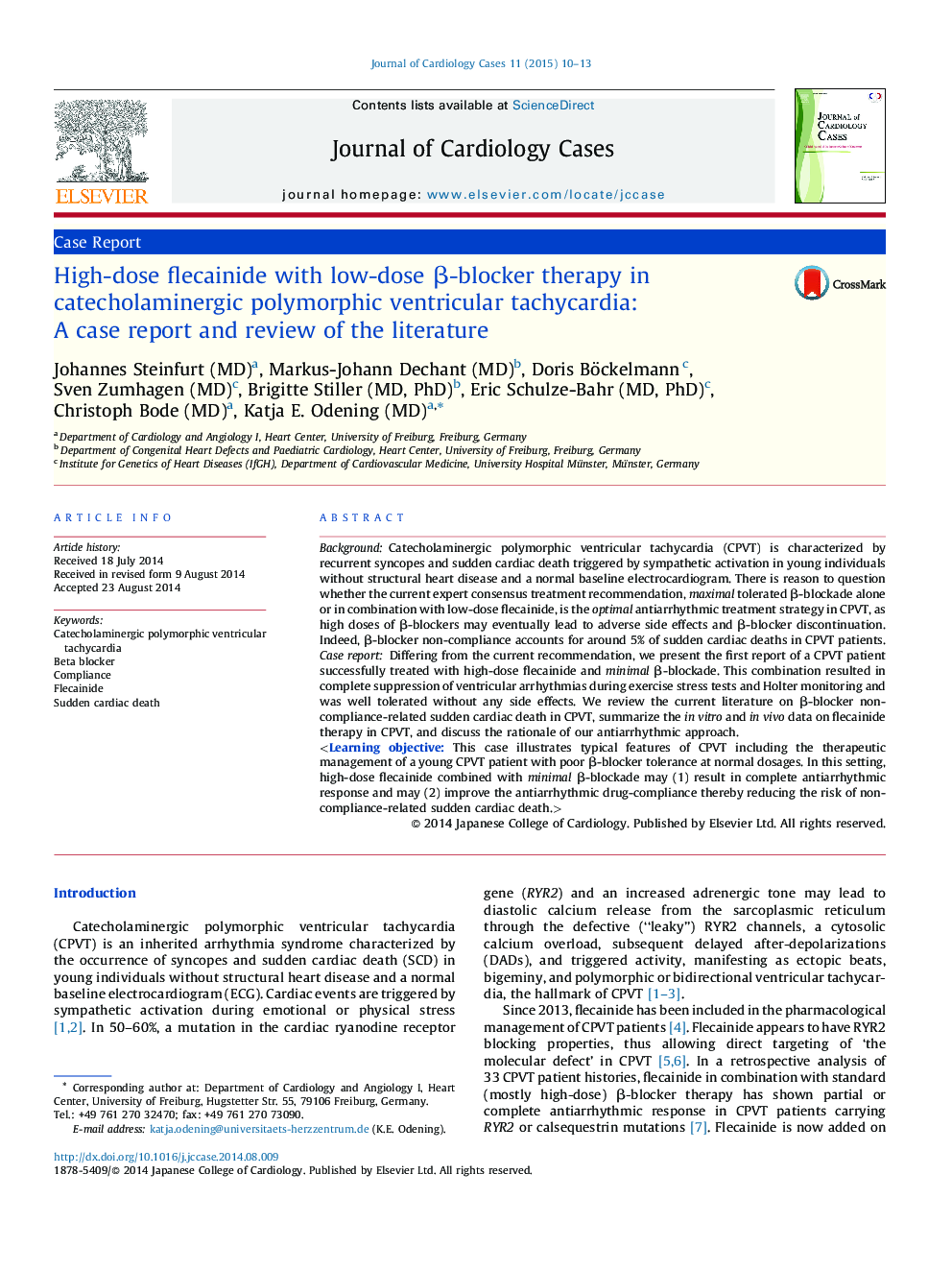| Article ID | Journal | Published Year | Pages | File Type |
|---|---|---|---|---|
| 2963891 | Journal of Cardiology Cases | 2015 | 4 Pages |
BackgroundCatecholaminergic polymorphic ventricular tachycardia (CPVT) is characterized by recurrent syncopes and sudden cardiac death triggered by sympathetic activation in young individuals without structural heart disease and a normal baseline electrocardiogram. There is reason to question whether the current expert consensus treatment recommendation, maximal tolerated β-blockade alone or in combination with low-dose flecainide, is the optimal antiarrhythmic treatment strategy in CPVT, as high doses of β-blockers may eventually lead to adverse side effects and β-blocker discontinuation. Indeed, β-blocker non-compliance accounts for around 5% of sudden cardiac deaths in CPVT patients.Case reportDiffering from the current recommendation, we present the first report of a CPVT patient successfully treated with high-dose flecainide and minimal β-blockade. This combination resulted in complete suppression of ventricular arrhythmias during exercise stress tests and Holter monitoring and was well tolerated without any side effects. We review the current literature on β-blocker non-compliance-related sudden cardiac death in CPVT, summarize the in vitro and in vivo data on flecainide therapy in CPVT, and discuss the rationale of our antiarrhythmic approach.
